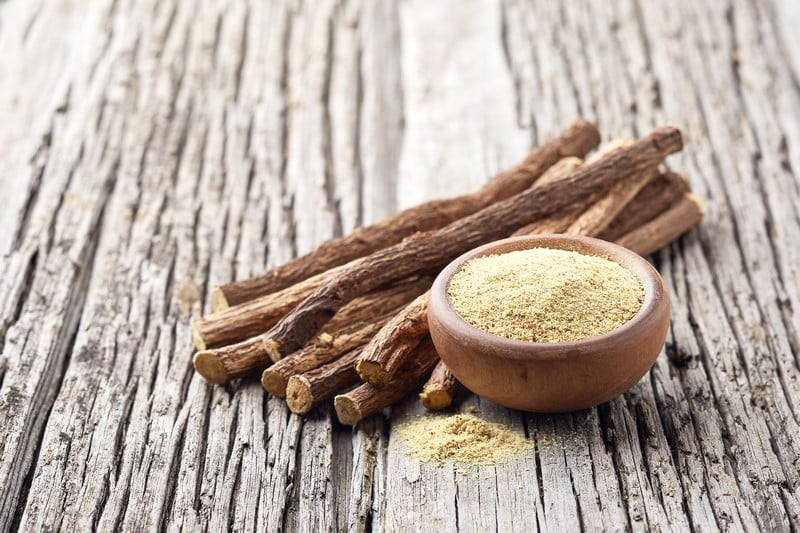Licorice Root

Licorice root, one of the oldest herbal treatments in the world, is derived from the licorice plant’s root (Glycyrrhiza glabra). Native to Western Asia and Southern Europe, licorice has been used for centuries as a culinary flavoring agent and a supplement for digestive health. According to a 2018 review, it may function as a moderate laxative and has anti-inflammatory properties, which are excellent for digestive problems.
On top of that, licorice may have potent impacts on controlling gut microbiota and may encourage the development of various good gut bacteria. In addition, licorice contains flavonoids that are often highly antioxidant and anti-inflammatory. It has a high concentration of polyphenols, coumarins, and stilbenoids which are also antibacterial.
Today, licorice root is marketed as a nutritional supplement for digestive issues, menopausal symptoms, cough, and bacterial and viral infections. There are also compatibility and synergistic benefits of the combination of licorice with probiotics in dietary supplements.
As an anti-inflammatory and demulcent (soothing) plant, licorice root is an effective natural treatment for ulcers and a useful leaky gut supplement. It was shown to be beneficial against functional dyspepsia, which covers not just heartburn but also a natural medicine for nausea, indigestion, and stomach discomfort.










